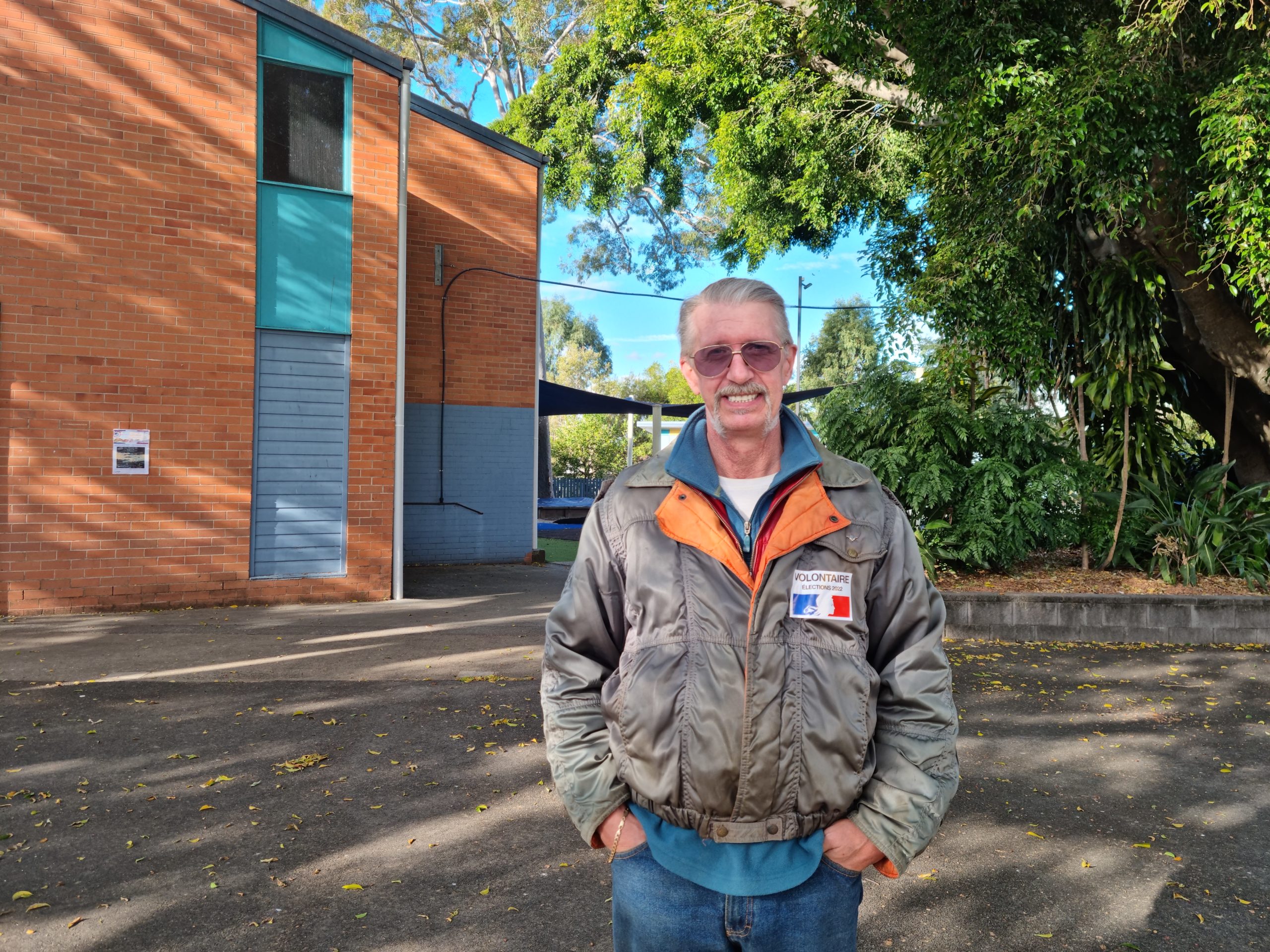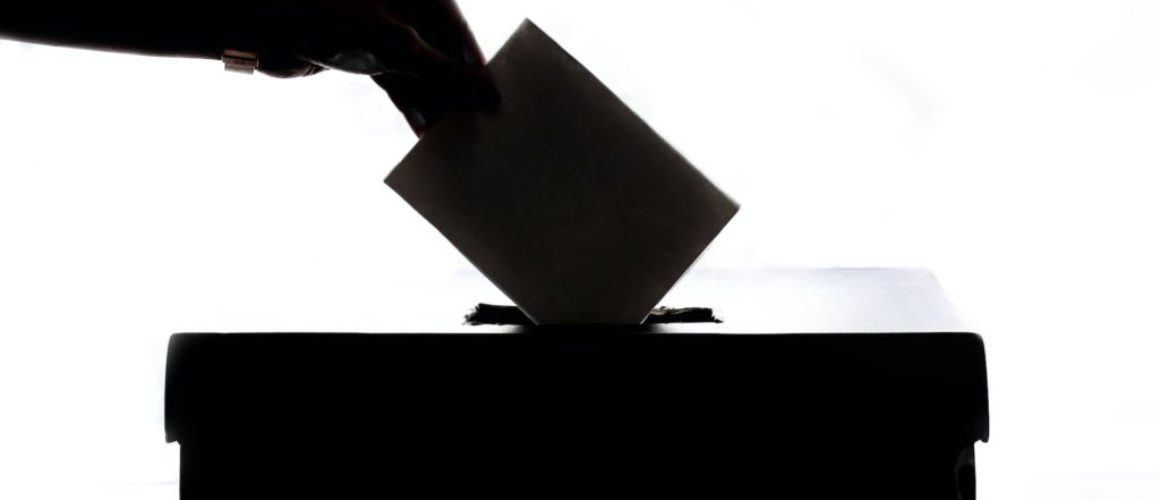Voting at the French elections from Australia: a population of non-voters or a failing system?
Frank Lamy voted this year for the first time. Originally from France, but having lived in Australia for the past 36 years, he first came after his military service for a holiday and never left. “One thing led to another and I found myself getting married and having kids,” he said. The first 30 years he was in Australia, he did not want to get in touch with the French community. “It’s part of the reason why I left”, he says, “because I had a very bad experience in the army”. The last time he visited France was in 1995, a trip he said he’d regretted since the expensive holiday he took “would have been much better” had he stayed in Australia.
The constant link that kept Frank connected with his home country was his mother. When she passed away, he found there was a void he needed to fill. He found himself missing the possibility to speak French, so he got closer to the French community of Brisbane.
Frank became president of the French Army Veterans of Australia and more recently decided to be a volunteer assessor for the 2022 elections.

“I’m very happy to have reconnected with French people and I try to get involved in several things now.
“I have a daughter who was born here, […] and I would like her to have this heritage, that there would be French people around [her],” he says.
His 22-year-old daughter is part of his organisation, but while she “never shows up to meetings”, she “receives the emails and knows it exists”. Her French heritage is not solely something on the other side of the planet that they never talk about.

There are a lot of people like Frank was for many years, who are French citizens living in Australia but don’t want to get involved in French politics or even in the community. The first indicator of that lack of interest in politics is the percentage of those registered to vote through the consulate to the overall French population in the country.
As of 2018, there were more than 24,810 French citizens residing in Australia who registered at the embassy while it is estimated there would be in between 50 000 to 70 000 French people residing in the country as a whole.
The representation of voters is very low with only 28?34% of those registered as voters in 2022 in the 11th constituency comprising Australia, Fidji, Kiribati, Papouasie-New-Guinea, Nauru, Tonga and Tuvalu to have been at the polls for the legislative elections.
…….
Head of Queensland Operations & National Head of Events for the French Australian Chamber of Commerce (FACCI) Claire Dupré explains the basic procedure to stay connected with France while residing abroad is to register on the consulate list to receive information about important events concerning French citizens such as the terms and conditions of the elections.
Mrs Dupré says since a large proportion of French citizens aren’t registered, the question would be more of a communication nature, whether French people would get properly informed on the perks of registering at the consulate.
Geneviève Evin, a French citizen who has lived in Melbourne for 35 years said she has aways felt the desire to fulfill her duty to vote.
“We keep family and cultural links with France and are very interested with what happens there. We think it is important for us to be able to elect our representants.
“It is less motivating to vote for the legislatives because our 11th constituency is very diverse and represents French people scattered across three different continents,” she said.
For those like Genevieve who do vote, it is sometimes difficult to access the consulate network.
This was the case of Celine Dro, a Franco-Australian who has lived in Australia for seven years and who knew she would be visiting France at the time of the elections.
To vote by proxy, she had to register her request by a French citizen representant of the consulate, yet those representants don’t necessarily live full time in one location but rather visit different cities in Australia throughout the year.
As a result, she and the person she was giving power of attorney to would have had to go to the consulate in Sydney since no one was visiting Brisbane at the right time. The appointment had to be during a week day from Monday to Thursday and it was impossible for them with work, so she simply decided not to vote.
…
Polling stations for the French elections are only located in Australia’s major cities, which makes it difficult for anyone residing in a regional area to be able to vote.
Mrs Dupré said the possibility for people to vote online for the legislative elections this year was an improvement as it opened the possibility for every French citizen residing abroad to access the vote without leaving home as long as they were registered on the consulate list.
However, this new element deemed to facilitate participation in elections has seen a number of issues arising, with certain email addresses not working or certain providers considering the message coming from the French government to be a spam.


October 9, 2022 @ 4:58 pm
Everyone loves what you guys are usually up too.
This kind of clever work and reporting! Keep up the good works guys I’ve
included you guys to my personal blogroll.
November 3, 2022 @ 9:03 am
Thnx!
November 9, 2022 @ 11:39 pm
Nearly all of what you state happens to be supprisingly accurate and that makes me wonder the reason why I hadn’t looked at this in this light previously. This article truly did switch the light on for me personally as far as this specific topic goes. Nevertheless there is one issue I am not necessarily too comfy with and whilst I attempt to reconcile that with the actual main idea of the position, allow me observe exactly what the rest of the readers have to point out.Nicely done.
November 27, 2022 @ 3:02 am
Let me just get straight to the point; I saw your blog and I think you would be a great fit for our company :-). We are currently paying upwards of $70/hour for English translators. We are looking for people who are reliable, hardworking, and willing to work long-term. English fluency is preferred, and I don’t think you should have any problems with this requirement. We are an online based company from North Carolina. Interested? Apply here: https://msha.ke/freedomwithtay
January 13, 2023 @ 12:36 pm
I might be interested. This link doesn’t take me to an application form though.